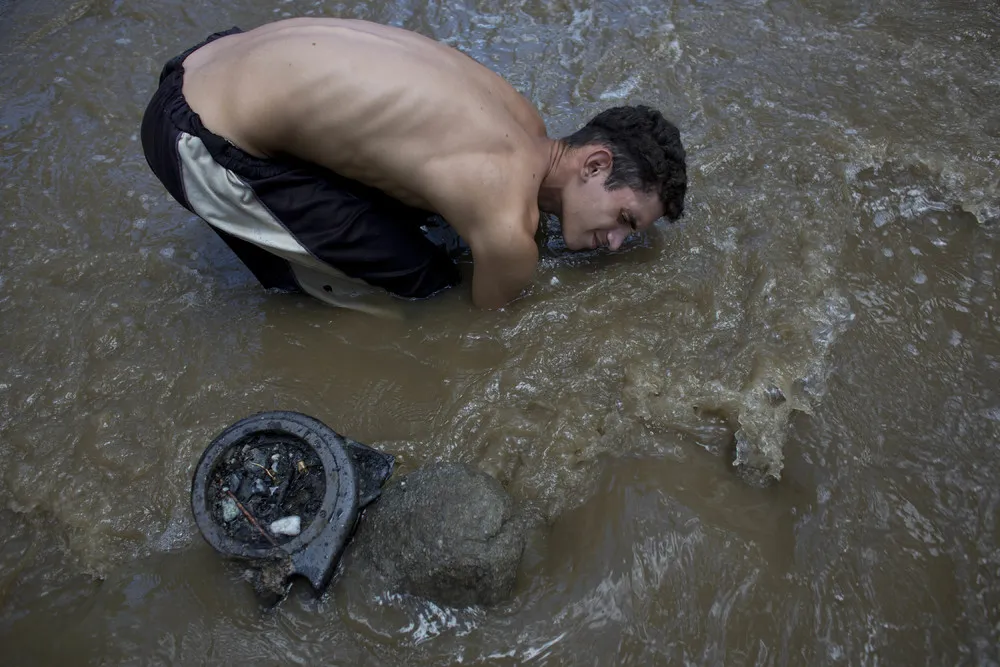|
Angel Villanueva waded into the dirty brown water of the Guaire River, the putrid channel snaking through Venezuela's capital, where he hoped to scavenge for a bit of treasure. He raked his hands across the bottom of the shallow waterway, turning his face away from the foul smell. Then he stood up, letting gravel and rocks fall through his fingers, scanning for an earring backing, lost rings or any other bits of precious metal to cash in for food. Scavenging alongside two others, Villanueva, 26, kept an eye on the dark clouds buffeting the mountains that surround Caracas. They could burst at any time, leaving him minutes to get out – or be washed away to his death. “Working in the Guaire isn't easy”, he said, talking over the roar of traffic on a nearby highway. “When it provides, it provides. When it takes, it takes your life”. Images of poor Venezuelans eating from garbage piles in Caracas have come to symbolize the deepening economic crisis in what was once one of Latin America's wealthiest countries. Less visible are the young men and boys who comb the Guaire's dirty waters for any sliver of metal that might help feed their families. The water is notoriously filthy – a drain for rainwater from the streets and sewers, along with industrial waste and an occasional treasure. “As long as I can remember, the Guaire was this open sewage”, said Alejandro Velasco, a native of Caracas and professor of Latin American history at New York University. “It certainly seems to reflect the depth and extent of the desperation that this particular crisis has spawned”. Nearly two decades of socialist rule in which food and oil production have plummeted amid poor management of state resources and a drop in world crude prices have driven many Venezuelans into desperation. Here: In this December 5, 2017 photo, David Garcia keeps his head just barely above water as he scrapes the bottom of the polluted Guaire River in search of gold and anything of value to sell in Caracas, Venezuela. The 19-year-old father of a 4-month-old baby said it was his first week working in the toxic, sewage filled waters and that his family didn't know this was how he was trying to earn money to put food on the table. (Photo by Ariana Cubillos/AP Photo)
|

